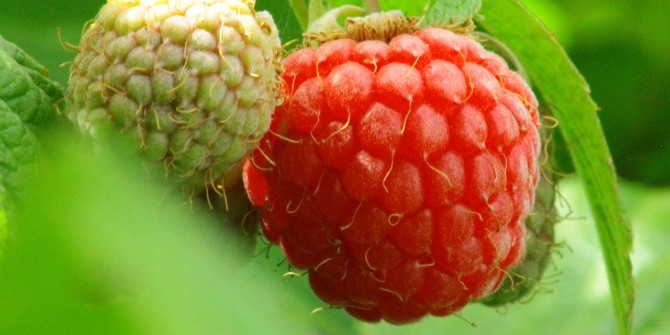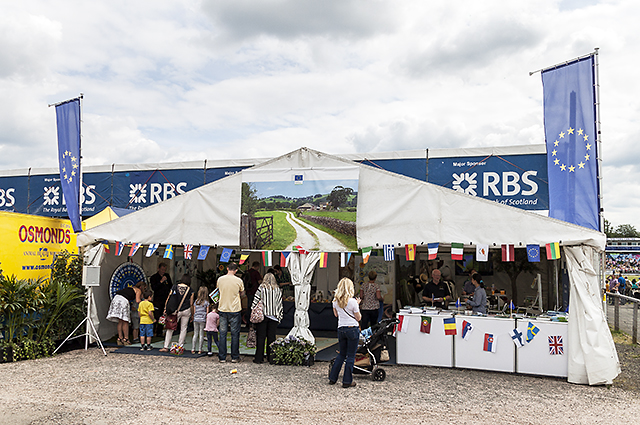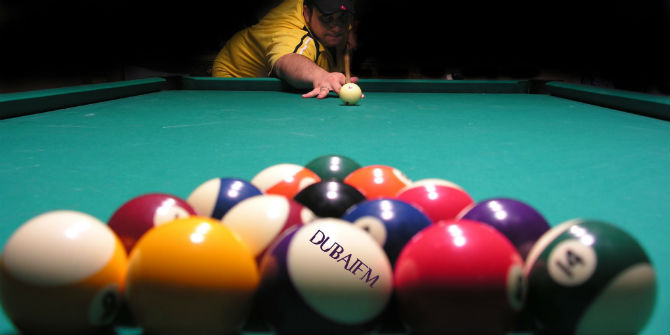The Covid-19 pandemic is at the forefront of everyone’s minds, but although Brexit negotiations have been suspended there is no official signal that Britain plans to ask for an extension. Ros Taylor (LSE) looks at the week’s developments.
Perhaps the most salient Brexit-related story of the week was the contradictory accounts of Britain’s liaison with the EU over medical supplies – or lack of it. At first the UK government claimed it had accidentally missed the deadline to source ventilators from the EU. Then it emerged that Britain had taken part in four meetings, but decided not to take part in the joint procurement scheme, presumably because it would undermine the country’s commitment to ‘going it alone’ outside the EU.

Meanwhile, MEPs urged the UK to delay the Brexit talks deadline beyond 31 December – as did the Scottish National Party – but the government insisted it was sticking to its timetable, even though no progress has been made since the start of the pandemic. ‘This is not just a diplomatic inconvenience; it is a big additional source of anxiety for businesses at what is already a pulverising time,’ wrote the FT.
How soon will Britain be forced to ask for an extension? ‘Officials on both sides of the Channel know that an extension is needed — in the name of economic sanity, if nothing else,’ said Jim Brunsden. This would involve more (unpopular) payments into the EU budget.
Other developments
Home Office is scaling back EU 'Settled Status' support as #coronavirus is stretching resources. Telephone helpline is suspended, ID documents can no longer be sent by post and some offices round the country to help vulnerable people with applications have closed. #brexit pic.twitter.com/LdCqafYRkj
— Georg von Harrach (@georgvh) March 30, 2020
The shortage of farm workers to harvest seasonal crops means Britain may be forced to fly in chartered planeloads of farm workers from central Europe, or watch crops rot in the fields. Alternatively, the recently unemployed may be pressed into service. The LSE’s Pat McGovern said:
‘Workers who have been laid off and students will be among those targeted as … travel restrictions mean only 10 per cent of the usual eastern European workforce will be available.’ No mention of ‘unskilled’, strangely! https://t.co/JMxUhiJXgb
— Pat McGovern (@PatMcGovern16) March 29, 2020
The UK doesn’t want to recognise the EU’s speciality trademarks, like champagne and parmesan.
Our pick of the commentary
Larry Elliott, a longtime Eurosceptic, argued that the pandemic was exposing the EU’s failures:
The message being sent out is that Europe is a project for the good times and that when the going gets tough people can only really rely on their own government and the nation state.
But Dionyssis G Dimitrakopoulos and Georgette Lalis said that after a slow start, EU leaders had begun to co-operate. And Rafael Behr argued those quick to declare the end of the EU project need to take a long look at themselves:
Coronavirus has not just bumped Brexit down the political agenda, it makes the whole project look parochial and self-indulgent.
David Bailey of the University of Birmingham asked whether no-deal preparations had helped British business prepare for Covid-19 stockpiling.
And the tools developed in DExEU are helping us to realise our interdependence on Europe, wrote Anthony Hilton.
The pandemic is exposing the weaknesses of populism – but beware its replacement, authoritarianism, warns Daphne Halikiopoulou:
A very fine line divides a strong paternalistic, but effective, state that protects its citizens, from an authoritarian one that curtails their freedoms. People are willing to trade-off their liberties for collective security, but for how long?
The last word goes to Duncan Astle:
I miss Brexit.
— Duncan Astle (@DuncanAstle) March 16, 2020
This post represents the views of the author and not those of the Brexit blog, nor LSE.
Would you like to receive a weekly update on Brexit-related news from the LSE? Subscribe to our email.







1 Comments